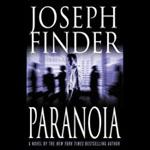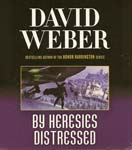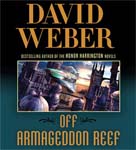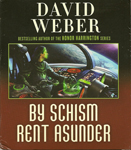
 Paranoia
Paranoia
By Joseph Finder; Read by Scott Brick
Audible Download – 13 Hours 8 Minutes [UNABRIDGED]
Publisher: Macmillan Audio
Published: July 2009
Provider: Audible.com
Themes: / Thriller / Espionage / Business / Crime / Corporate Culture /
Adam Cassidy is 26 and a low-level employee at a high-tech corporation who hates his job. When he manipulates the system to do something nice for a friend, he finds himself charged with a crime. Corporate Security gives him a choice: prison – or become a spy in the headquarters of their chief competitor, Trion Systems. They train him and feed him inside information. Now at Trion, he’s a star, skyrocketing to the top. He finds he has talents he never knew he possessed. He’s rich, drives a Porsche, lives in a fabulous apartment, and works directly for the CEO. He’s dating the girl of his dreams. His life is perfect. All he has to do to keep it that way is betray everyone he cares about and everything he believes in. But when he tries to break off from his controllers, he finds himself in way over his head, where nothing is what it seems and no one can really be trusted. And then the REAL nightmare begins…
I quite enjoyed this audiobook. That surprised me quite a bit. I was fairly skeptical going in. Books about business are often too much like self-help books. At worst they can be all full of untestable advice, formulaic reformulations of Sun Tzu’s The Art Of War, dogmatic variations on Machiavelli’s The Prince or even, horror of horrors, creating their own Baconian-style methodology (writing lists of commonalities). But, I told myself, this is a business thriller and not a business book, so I gave it a try. Now,after reading this thriller I think I’d be up for reading a good book on real world corporate espionage. It might be more interesting than any other kind of non-fiction business book I’ve read. A few other things struck me about Paranoia. First, Joseph Finder can write. This isn’t Oprah fiction, this literature that fits in somewhere in between John Grisham and Nelson DeMille. Second, there are a few twists and turns along the fairly predictable path. Some of these came rather unexpectedly. Those being generally in a good way. Third, Adam Cassidy, our flawed hero, is a fairly likable protagonist. This is helped by having the story told first person (and narrated the ever lovable Scott Brick). As to the novel’s formula, there were a couple of rough patches. At several points throughout the novel Finder seems to make a special effort to distance Cassidy from the techie world he works in. This felt a bit odd for the story, but it seems like a ploy to make a thriller set in the iPhone world more mainstream than it really is. At certain points Finder has Cassidy far less familiar with his tech business than he should be. In my experience techies usually don’t think of their toys as mere tools. I’ve never worked for Palm or Apple or Research In Motion (they make the BlackBerry), but I’m betting that the folks who work there are a lot more techie than Adam Cassidy. Another issue, the family and friends felt constructed into the plot – put there to provide a break from the main thrust of the story. Despite this I found myself not too upset with the author’s manipulation. Scott Brick again probably helped here. I’m not convinced he’s the best narrator for a lot of novels I hear him reading, but for those told first person, I must admit he’s got to be one of the best. Lastly, as with the character being blatantly aimed at the mass market, rather than more realistic for his position, there is comparable problem with the novel’s title. Sure there is a bit of paranoia in Paranoia – but that title has more to do with crappy generic book titling culture than the book itself. Corporate suits get there way on this all the time, and we consumers aren’t calling them on it. I would much rather read We Can Remember It For You Wholesale than Total Recall. The first tells me something about the story.
I picked up Paranoia during Audible.com’s free giveaway of the audiobook a few weeks back. After getting my first taste for free I think I’d be willing to pony up an Audible credit for the next Joseph Finder novel to come out. One Audible reviewer gave the novel a low star review because it has “more F-Bomb’s in it than any other book that I’ve read.” Thinking back, I can’t say I remember that many. The odd “Fuck!” now and then was present, but given the circumstances Cassidy is dealing with from chapter to chapter leaving them out would have been far more noticeable than having them there. Real drama tends to have swearing. I don’t usually like to talk about adaptations of audiobooks into other mediums. My ususal thinking is that fiction is best in the audiobook form, but I realized about two thirds of the way through that Paranoia might be improved further. There is a chapterized serial cliff-hanger feel to it that is similar to that of some of the best of modern television programs (the likes of Dexter, Breaking Bad and Weeds). Thematically, of course, this theoretical television adaptation would be far more similar to the short lived Fox TV series Profit. If there is going to be an adaptation of this novel, I suggest it be to cable TV, if only to keep the all the swearing.
Posted by Jesse Willis









